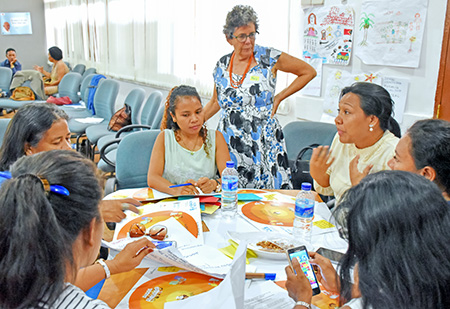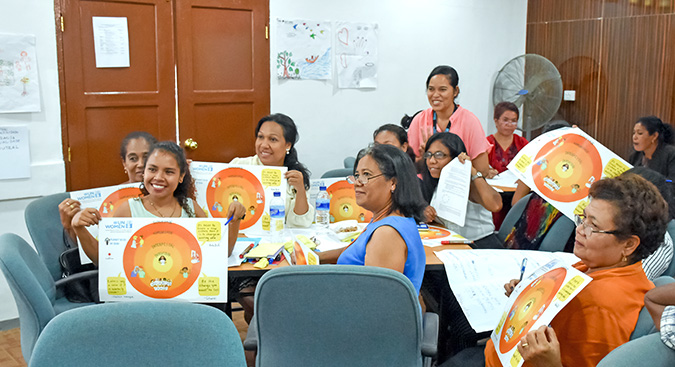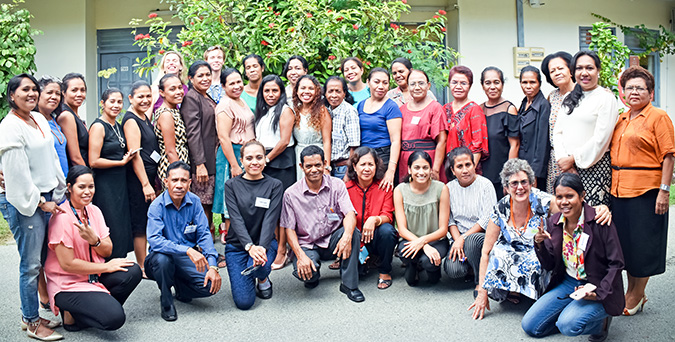From transforming within to transforming society: UN Women launches training on leadership for gender equality in Timor-Leste
Date:
Dili, Timor-Leste — “I participated in several leadership trainings over my career but this workshop has provided me more insight on leadership, because it is building on the existing capacities of the participants, and recognizing their strengths,” said Manuel Dos Santos, the Director of non-governmental organization Pradet, which provides support services to survivors of violence.

Manuel shared these thoughts following the first workshop on Transformative Leadership, facilitated by UN Women, in collaboration with REDE FETO—the national women’s network. He joined a group of 25 female leaders representing the members of REDE FETO and other organizations working for gender equality. He joined a group of 25 female leaders representing the national women’s network, known as Rede Feto and other organizations working for gender equality.
Deviating from more conventional approaches to training, UN Women’s Transformational Leadership initiative catalyzes individual, organizational and wider social change for gender equality by recognizing all individuals as leaders irrespective of their professional or personal titles. The initiative fosters an incremental approach to change by building on the shared values of participants and amplifying their individual strengths using participatory workshops, applied learning, peer-support and network-building over a one-year period.

UN Women Timor-Leste initiated the training given the potential for individuals in leadership positions to influence social structures for greater gender equality. Although women in Timor-Leste have gained visible roles at national levels, representing 20 per cent of ministerial positions and 37 per cent of Parliament as of April 2017, the training is aimed at both men and women, and key to building a critical mass of women in leadership across society. This is particularly critical for the ongoing decentralization process, considering women hold only 5 per cent of leadership across the 442 village councils nation-wide.
Realizing benefit from the training, Paula Corte-Real, the Executive Director of the Timor-Leste Women’s Caucus, focused on women’s political participation, confirmed, “This is a good step for us to recognize ourselves as leaders and to share our values. With this, we can improve our work and achieve our targets.”
Emphasizing the potential for this new model of inclusive and dynamic leadership in her opening remarks, Sunita Caminha, Deputy Country Representative of UN Women, stated, “While leadership may not be new to you, the transformation that we can create through our time together is new and limitless. Together, we can change how we lead -in our organizations, in our families and in our communities…we can harness the collective power that exists to bring us closer to the vision of gender equality that we are working towards every day–a vision that still remains in the distance.”

The Leadership Training is supported by the Government of Japan, as part of efforts to ensure women’ voices are heard and their decisions influence peaceful development in Timor-Leste.
For more information:
Felix Maia
Communications Officer
Email: [ Click to reveal ]
Tel: (670) 7833 9440